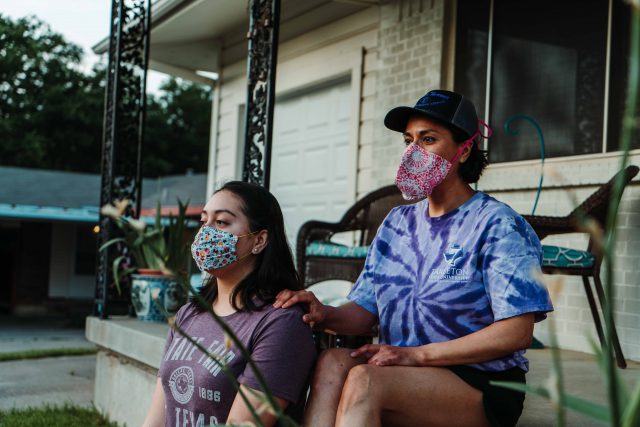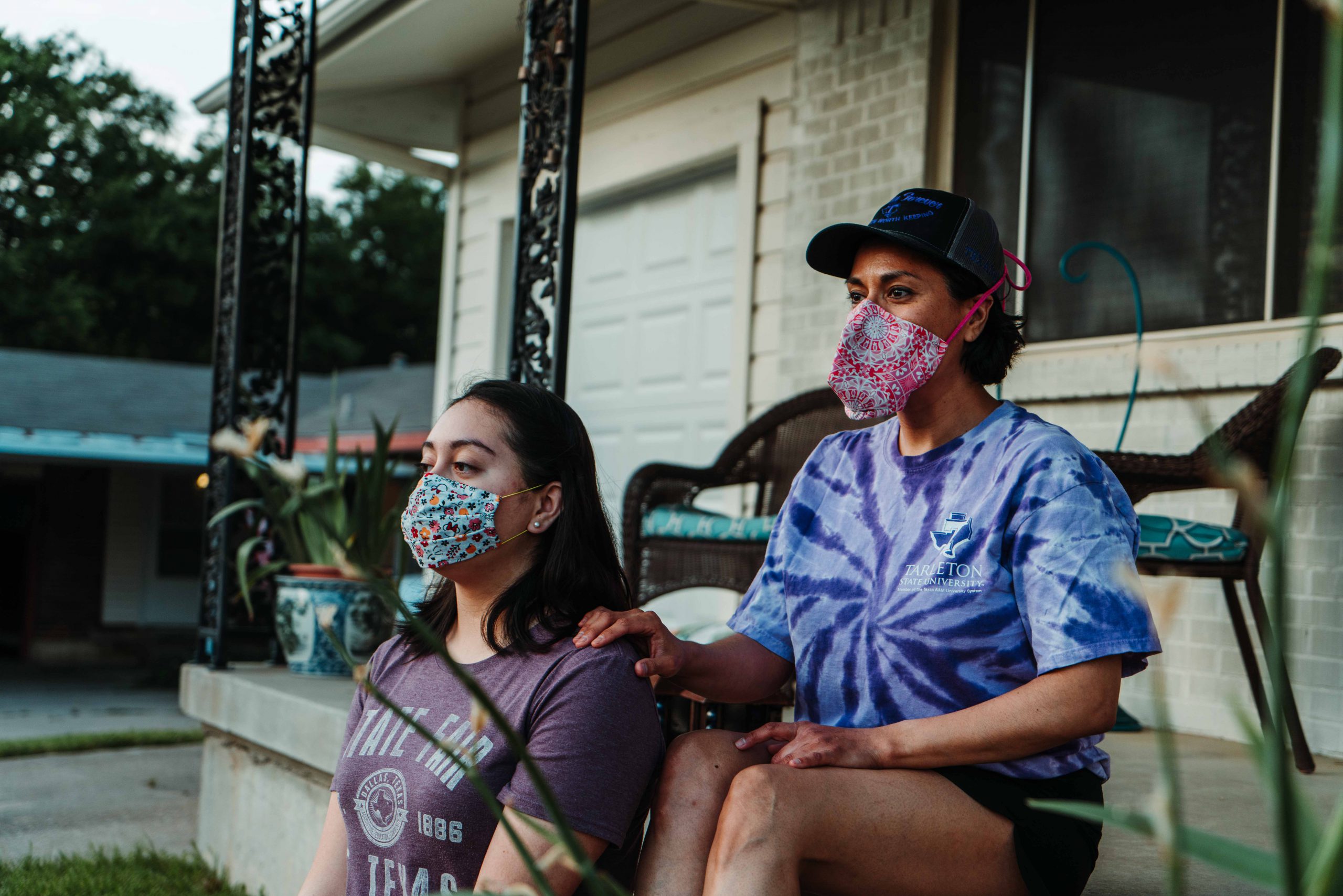April 29, 2020 | Jill Bold | editor-in-chief

Dual credit student Adriana Lopez and her mother NE student Venezia McCain raced through a red light on the way to Cook’s Children’s Hospital March 20, speeding toward an emergency room to save Lopez from dying from anaphylactic shock. Before her mother picked her up, she had become ill in a matter of moments.
“I looked in the mirror, lifted my shirt and saw that the rash was all over me,” Lopez said. “It felt like fire on my body. My throat was tight, and it was really hard to swallow.”
She called her mother immediately. McCain used her training as a former 911 operator to keep Lopez calm while she drove home to help.
McCain drove her usual 25-minute commute in about 12 minutes, arriving home to find Lopez needing immediate medical attention.
She knew she couldn’t wait for an ambulance, so she opted to drive Lopez in her own car in case her condition got any worse.
“If needed to do CPR or inject her with the EpiPen, I could do that,” McCain said.
Lopez has a history of allergic reactions, but nothing like this. McCain wasn’t sure what could’ve caused the extreme reaction her daughter was experiencing.
McCain, who is immunocompromised, was concerned when Lopez came home feeling sick after staying with her dad for the first part of spring break. McCain knew she was at risk of becoming seriously ill if she caught any sickness.
“If I go down, we’re in deep trouble,” McCain said.
They later learned that at least two members of the Lopez household tested positive for the flu. Soon after Lopez returned home, she experienced a runny nose, fever, and sore throat, but the allergic reaction symptom of a body rash seemed odd. Lopez did not change her laundry detergent, try new foods, or change anything in her daily routine that would normally trigger a reaction like the one she was experiencing.
The hospital released Lopez after they treated her with several EpiPen injections and a cocktail of other medications, stabilizing her. After this first hospital visit, McCain and Lopez walked away without any answers as to what happened or what caused Lopez’s illness.
By the next morning, a rash had reappeared on Lopez. Her fever persisted. This time, McCain said she notified Lopez’s pediatrician, Dr. Rebecca Olvera, on the way to the hospital, who advised her to stay longer this time to probe for more answers.
Lopez’s reaction progressed in front of the medical staff at the hospital. Although the doctor ran blood cultures and performed chest x-rays, the possibility of the coronavirus has not been mentioned. McCain knew that tests were not widely available and didn’t request one at that time.
McCain reached out to allergist and immunologist Dr. James Thompson for help. Through a video appointment, Dr. Thompson discussed all the symptoms and the timeline of exposure, sickness, and treatment with McCain and Lopez. He suspected that the coronavirus was the culprit, and the allergic reaction was a cytokine storm, the body’s overreaction of the immune system, and a complication of the coronavirus.
McCain was advised to get in touch with dermatologist Dr. Catherine Harrell, who confirmed that another patient presenting the same set of symptoms and hives had a confirmed coronavirus diagnosis. Dr. Harrell said she concurred with Dr. Thompson in regard to coronavirus being the probable source of Lopez’s illness.
Lopez did not get a test during the time when she could have tested positive for coronavirus because it was not on most doctor’s radars at that time.
Dr. Thompson warned against going to get the antibody test to confirm what she already assumed. He did not want McCain to contract the virus by taking her daughter up to a testing site where she was almost guaranteed to be exposed.
Both McCain and Lopez have struggled to keep up with school while navigating this ordeal.
“The toughest part of all this is the unknown,” she said. “Without the documentation of a test, it’s hard.”
They have conducted their lives as though Lopez had a confirmed case of the coronavirus, and they maintain their distance from each other while they live together. McCain doesn’t want to assume any differently and have a false sense of security that she is safe when she may not be.
Her doctor’s advice: Both women need to self-quarantine and self-isolate as much as possible. Lopez is recovering, but she is feeling lasting effects from her brush with this illness.
“I’m pretty tired most of the time,” Lopez said.

